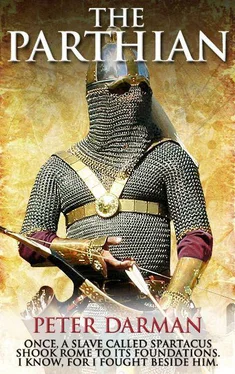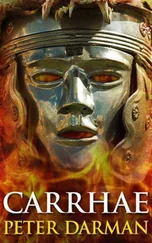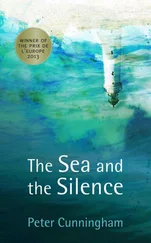Peter Darman - The Parthian
Здесь есть возможность читать онлайн «Peter Darman - The Parthian» весь текст электронной книги совершенно бесплатно (целиком полную версию без сокращений). В некоторых случаях можно слушать аудио, скачать через торрент в формате fb2 и присутствует краткое содержание. Год выпуска: 2011, Жанр: Исторические приключения, на английском языке. Описание произведения, (предисловие) а так же отзывы посетителей доступны на портале библиотеки ЛибКат.
- Название:The Parthian
- Автор:
- Жанр:
- Год:2011
- ISBN:нет данных
- Рейтинг книги:4 / 5. Голосов: 1
-
Избранное:Добавить в избранное
- Отзывы:
-
Ваша оценка:
- 80
- 1
- 2
- 3
- 4
- 5
The Parthian: краткое содержание, описание и аннотация
Предлагаем к чтению аннотацию, описание, краткое содержание или предисловие (зависит от того, что написал сам автор книги «The Parthian»). Если вы не нашли необходимую информацию о книге — напишите в комментариях, мы постараемся отыскать её.
The Parthian — читать онлайн бесплатно полную книгу (весь текст) целиком
Ниже представлен текст книги, разбитый по страницам. Система сохранения места последней прочитанной страницы, позволяет с удобством читать онлайн бесплатно книгу «The Parthian», без необходимости каждый раз заново искать на чём Вы остановились. Поставьте закладку, и сможете в любой момент перейти на страницу, на которой закончили чтение.
Интервал:
Закладка:
‘Where were you, Parthian?’ he shouted. ‘Where were you?’
It was useless to try to talk to him. He was obviously still possessed of blood lust. We rode through the remnants of his command back to our camp with his words ringing in my ears.
‘Where were you, Parthian?’
We still lived, but the army of Spartacus was no more.
Chapter 19
We built a massive funeral pyre that night on a knoll near to the entrance to the camp and burned the bodies of Spartacus and Claudia upon it, laying them side-by-side so that they were together in death as they were in life. Diana stood next to Gallia holding the infant as the flames consumed the bodies in a huge fireball that hissed and crackled with fury. We stood in silence, thousands of us, and watched our lord and general and his wife depart from this world to take their place in heaven. I said a prayer to Shamash and hoped that He would be kinder to them in the afterlife than the Romans had been in this life. I looked around at the ocean of faces that stood illuminated by the red and yellow flames, a myriad of different races — Thracians, Spaniards, Dacians, Gauls, Germans, Jews, Illyrians, Greeks and Parthians — all of whom had been forged into an army by a former gladiator, a man who had nothing and yet one who had commanded the respect, love and loyalty of thousands. But then what were positions, titles and possessions? I was a prince by an accident of birth, called highness by those who did so not by choice but because they had to, and who had lived in palaces and been given the best things not because I had earned them, but because of who I was. I was proud to be a prince of Hatra, but I was prouder to have fought for Spartacus and my pride burned as bright as the flames before me when I considered that I had also been his friend. And as his friend I would carry out his and Claudia’s wish to take their son back to Parthia. But what about the rest of the army, what would those who had fought for Spartacus these past years do now? The answer came in the days following.
I had stood and watched the fire diminish and die, until in the dawn light it was only a large mound of smoking black ash, the bodies of Spartacus and Claudia seemingly whisked away by invisible phantoms to bear them to heaven. Or so I liked to believe. The camp was full of those who had fought the day before, the dying, the badly injured, those like myself who had been in the foremost ranks and never suffered even a scratch, and those whose bodies were untouched but whose minds had been turned to mush by what they had seen and experienced. The morning and afternoon were filled with screams and groans as doctors sawed through mangled limbs and probed wounds for fragments of arrowheads and splinters of steel and iron.
I sent out cavalry patrols to determine if the Romans were going to attack us, but they returned to report that the enemy was shut up in their two camps and showed no signs on movement. I was not surprised. Thousands of them lay rotting on the battlefield and many more must have been wounded. They were probably in a worse state than us.
‘Exactly,’ said Afranius, ‘and now is the time to strike and finish them off.’
Godarz laughed. I had convened a meeting to determine what course of action should be followed now that Spartacus was dead. Amazingly, Cannicus still lived, but he was pale and weak and I feared that it was only a matter of time before he succumbed to his wounds. His entire belly and chest had been wrapped in bandages, but the blood was still seeping through. Two of his men had carried him to the meeting in a chair and had wrapped him in a cloak to keep him warm, for the morning air was cool. Nergal was present, as was Gafarn.
‘We are going home, Pacorus,’ said Cannicus, breathing heavily with the effort of talking.
‘You speak for all the Germans?’ asked Afranius.
‘I do, what’s left of us. We will go north through the mountains and then head for the Alps. We wish to see the great forests of Germania once more before we die.’
‘And you, Afranius, what will you do?’ I asked.
He looked at me with contempt. ‘I have spoken to others in this camp who do not want to flee when victory is within our grasp. We will attack the Romans and destroy them.’
‘Did a Roman hammer strike you on the head yesterday and knock out any little sense you may have had?’ said Godarz incredulously. ‘They are down in their camps waiting for another thirty thousand troops to join them, and once they do, they will march up this valley and slaughter anyone foolish enough to remain here.’
‘What Godarz says is true,’ said Nergal. ‘I fought them on the Appian Way and you will not prevail against those soldiers.’
But Afranius was living in a fool’s paradise and our words had no effect on him. If anything they made him more contemptuous of our opinions.
‘I will lead an army against the Romans,’ he said. ‘And when we have destroyed them, I will fulfil the dream of Spartacus and march on Rome itself.’
‘It was the dream of Spartacus that we should be free, not lying dead on a battlefield,’ said Cannicus.
‘There is no more fight left in this army,’ added Godarz.
‘Will you make yourself emperor, Afranius?’ I asked.
He said nothing, only snorted dismissively, then rose and walked from the tent. I never saw him again.
During the next few days the main camp and my cavalry camp across the river were hives of activity as the various contingents made provision for their journeys.
I held a final parade of the cavalry. Now reduced to seven hundred riders, such had been the scale of our losses at Brundisium, Rhegium, on the Appian Way and here, on the Silarus. Companies reduced to mere shadows of their former selves, but still the men sat proud on their horses, even Byrd’s ragged band of scouts, and Vardanes held my banner as I addressed those assembled.
‘Friends, today we depart this valley and embark on many journeys. Some of you have elected to come with me to Parthia, others have decided to march south to Bruttium, and there are those who will head north to the Alps and over the mountains.
‘We have fought many battles and won great victories over the Romans, and in all the time that we have been together we have not been defeated. We are undefeated still.’ They gave a mighty cheer at this, which startled some of the horses.
‘So I say to you all, wherever you go, each of you can take pride in your achievements and know that you were once part of a great army under the command of one of the greatest generals in history, Spartacus, whose name will live on long after we have departed this world. Go with pride, my friends, and let us look forward to day when we are done with this world and shall once again be reunited.’ I drew my sword and held it aloft.
‘Spartacus.’
They shouted his name long and hard and on that spring day, while on the other side of the river those who had elected to follow Afranius mustered into their centuries and cohorts under a brilliant blue sky. It was a decent showing, and I was tempted to join them. Godarz, who had been working with his quartermasters to ensure that what supplies were left were distributed fairly, must have read my thoughts.
‘They are fools and you know it,’ he said dismissively.
‘For wanting to stay free?’
‘No, for refusing to face facts, and the plain truth is that we cannot win now. A year, six months ago, perhaps, but the gods have turned against us and nothing we can do can change that.’
Byrd arrived on his scruffy horse, much to my surprise. He nodded at Godarz, who nodded back.
‘We have more important matters to attend to,’ said Godarz.
I was bemused. ‘We do?’
‘It is time to plan for the future, highness. And for that I must have your trust.’
Читать дальшеИнтервал:
Закладка:
Похожие книги на «The Parthian»
Представляем Вашему вниманию похожие книги на «The Parthian» списком для выбора. Мы отобрали схожую по названию и смыслу литературу в надежде предоставить читателям больше вариантов отыскать новые, интересные, ещё непрочитанные произведения.
Обсуждение, отзывы о книге «The Parthian» и просто собственные мнения читателей. Оставьте ваши комментарии, напишите, что Вы думаете о произведении, его смысле или главных героях. Укажите что конкретно понравилось, а что нет, и почему Вы так считаете.












